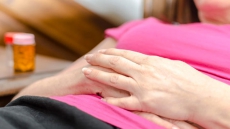Are you a heavy drinker? Take note. Alcohol exposure early has lasting effects on the brain and increases the risk of anxiety in adulthood, say researchers, including one of an Indian-origin.
A study showed adolescent binge drinking, even if discontinued, increases the risk for anxiety later in life due to abnormal epigenetic programming.
"Epigenetics" refers to chemical changes to DNA, RNA or specific proteins associated with chromosomes that change the activity of genes without changing the genes themselves.
"Binge drinking early in life modifies the brain and changes connectivity in the brain, especially in the amygdala, which is involved in emotional regulation and anxiety, in ways we don't totally understand yet," said Subhash Pandey, Professor at the University of Illinois in the US.
"But what we do know is that epigenetic changes are lasting and increase susceptibility to psychological issues later in life, even if drinking that took place early in life is stopped," said Pandey.
For the study, adolescent rats that underwent an assessment for anxiety were exposed to ethyl alcohol for two days on and two days off or to the same protocol using saline for 14 days.
The rats were allowed to mature to adulthood without any further exposure to alcohol.
The rats exhibited anxious behaviour later in life, even after the binge drinking regimen stopped in late adolescence. They also had lower levels of a protein called Arc in the amygdala.
Arc is important for the normal development of synaptic connections in the brain.
The findings were published in the journal Biological Psychiatry.
Rats with less Arc also had about 40 per cent fewer neuronal connections in the amygdala compared with rats that weren't exposed to alcohol.
The decrease in Arc levels is caused by epigenetic changes that alter the expression of Arc, and an enhancer RNA, which modifies the expression of Arc. These changes are caused by adolescent alcohol exposure, said Pandey.




